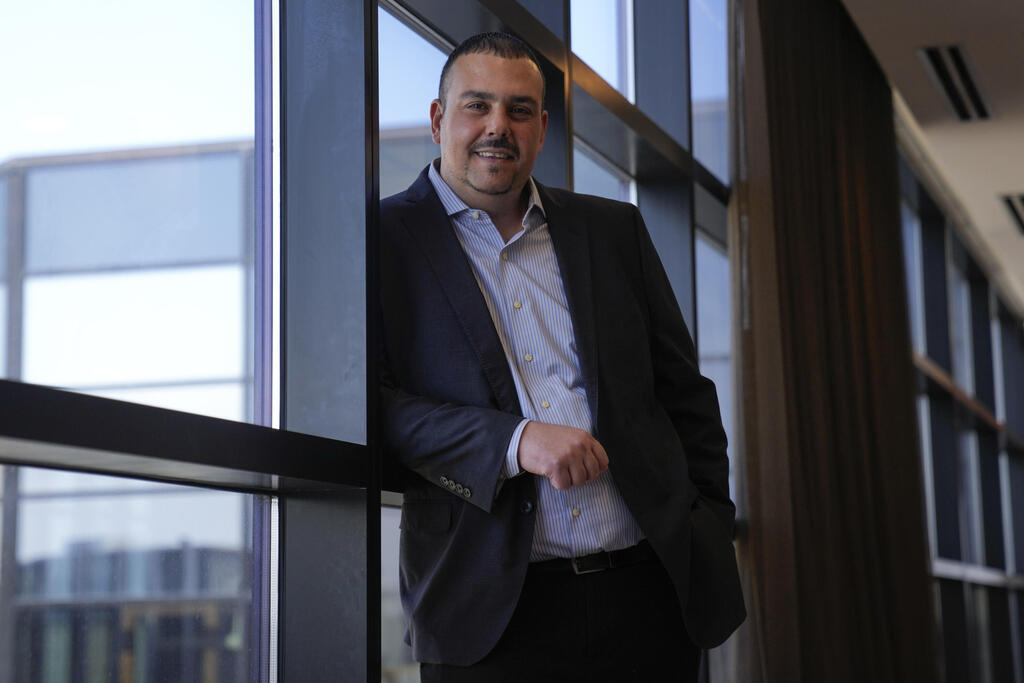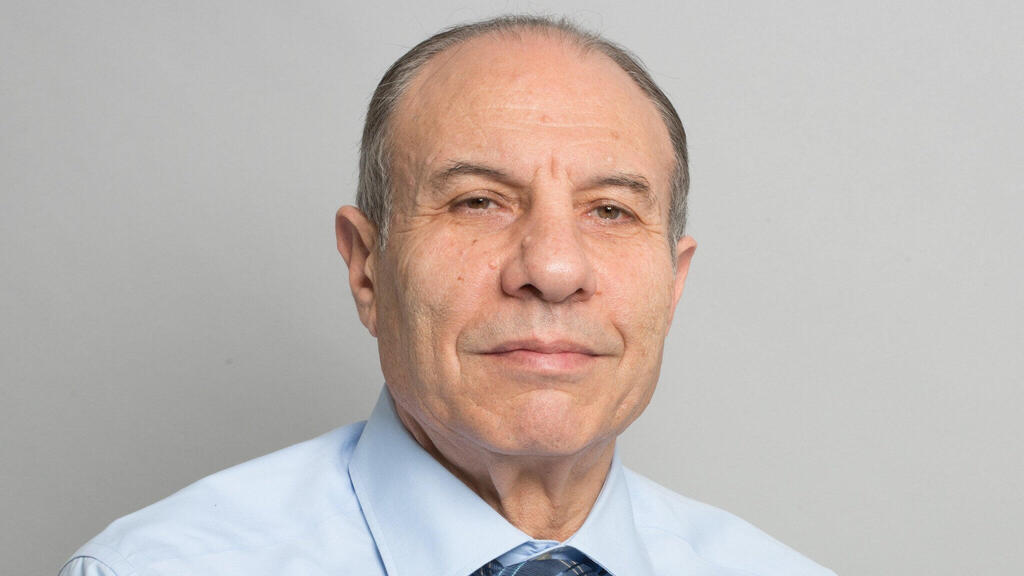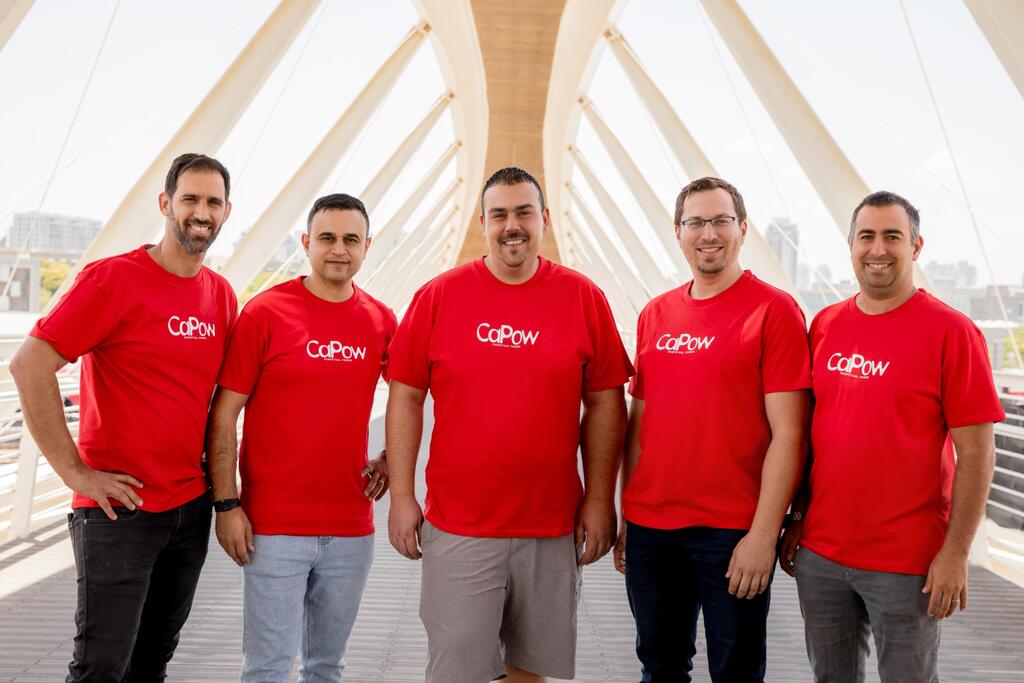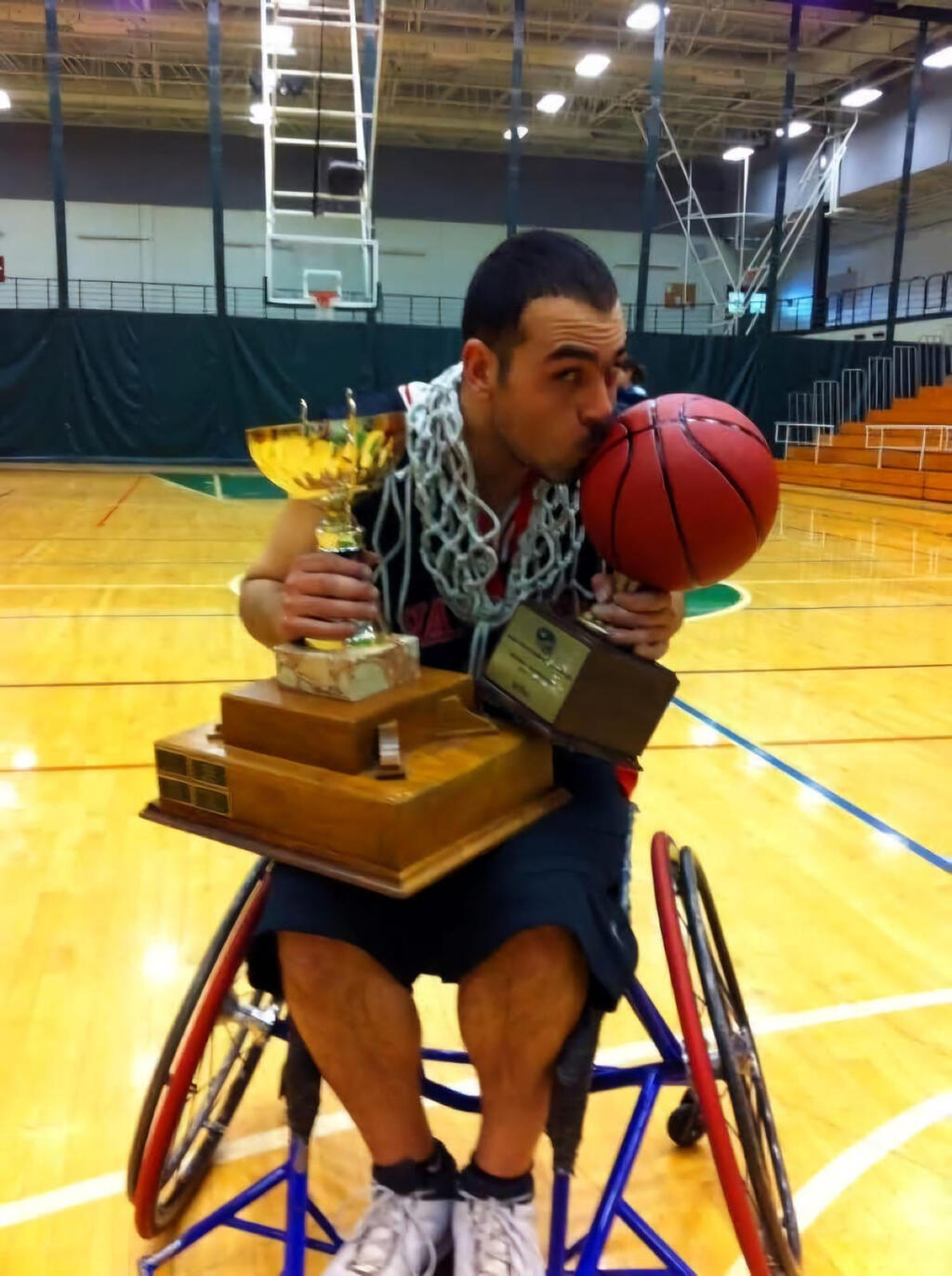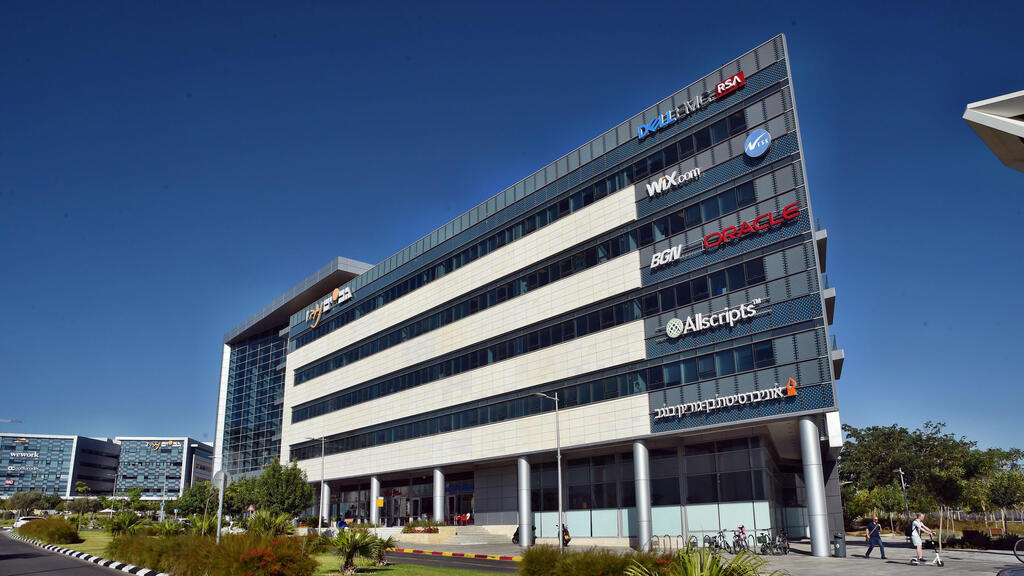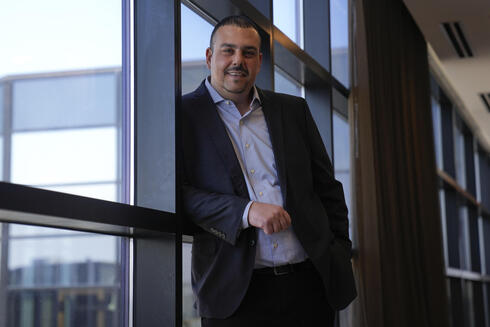
Mor than meets the eye: How Mor Peretz turned challenges into CaPow’s breakthrough
How a disabled army veteran became a professor, a tech innovator, and the founder of CaPow.
Mor Peretz (45) was never meant to be a professor or an entrepreneur. He never planned, let alone dreamed, of such a career path. Even his background—a graduate of a technical school in Be’er Sheva who did not serve in an intelligence unit or a technology track in the army—did not suggest he would one day establish a promising startup while receiving job offers from the world's leading universities. But then, an accident changed the course of his life completely, and Peretz discovered that, in a way, he was always meant for this.
It happened during his military service when he fell from the third floor, leaving him disabled and unable to use one of his legs. "My mother and sister saw that I was depressed and decided I needed something to keep my mind engaged. So, without asking me, they enrolled me in studies at Sami Shamoon College," Peretz recalls. "At the time, I had no plans. I was at home after the injury, undergoing surgeries and rehabilitation, but they decided this was the right thing for me. Since I had attended a technical high school and was already an engineer, I adapted to the track for completing my degree in electrical and electronics engineering. The college designed a unique program to accommodate my rehabilitation period. This is something academic institutions should consider now more than ever, given the many wounded soldiers undergoing lengthy rehabilitation who also wish to pursue studies."
What did that program look like?
"I was allowed to take courses in any order I wanted, so I found myself taking fourth-year courses in my first year—which, by the way, is a course I still teach today. I would go to school on crutches, between physiotherapy sessions, treatments, and pool therapy, and the college completely adjusted the system around me. Universities weren’t as flexible back then, and I’m not sure they are ready for such far-reaching changes today. But in the current reality, it's more important than ever."
You were the first graduate of the college to continue to a master’s degree at a university. How did that happen?
"I never had a childhood dream of being in academia, but after excelling in my first semester, I was hooked. It fascinated me, and I realized I wanted to keep studying. Back in 2002, there was no clear path from college to university. I was the first to make the transition, thanks in large part to Professor Saad Tapuhi (then Dean of the Faculty of Electrical Engineering at the college), who helped me navigate the entire bureaucratic process.
"When I arrived at Ben-Gurion University, people looked at me strangely. They told me, 'There’s no such thing as going straight into a master’s program after a college degree.' I told them, 'I was second in my class in grades. Give me the toughest undergraduate courses in electrical engineering, and I'll prove myself.' They gave me a year and set a condition: I had to score above 80 in all the core courses required for a master’s degree. I finished with an average above 95 and continued directly to my PhD."
Since then, Peretz’s academic career has soared. The first in his family to earn an academic degree, he became a full professor and head of his department before the age of 40. He has won numerous scientific awards for breakthroughs in electrical engineering and has received prestigious job offers from the University of California, Berkeley, and MIT. But Peretz turned them down—to return to Be’er Sheva.
Who turns down MIT and Berkeley for Be’er Sheva?
"I leave the house in the morning and return at night, so it doesn’t really matter to me where my lab or office is. It matters more to my wife. Besides, I believe I can bring excellence here, too."
It’s admirable, but you turned down a lot of money and prestige.
"True, it’s not a trivial decision. My first salary after my postdoc was 7,000 shekels, while my friends who went to MIT or Berkeley started at $200,000 a year. There’s also no denying that students at Ivy League universities have better starting conditions than someone who grew up like me in Be’er Sheva. But with hard work and focus, you can still achieve great things. I never looked at just one day—I focused on the long race. At Ben-Gurion, since it's a smaller institution, my trajectory was faster. I quickly built up a research group with a double-digit number of students and secured significant funding, whereas my colleagues in the U.S. progressed more slowly due to the bureaucratic nature of universities there.
"And beyond practical considerations, there is also Zionism: I feel a mission to educate the next generation of engineers right here in Be’er Sheva. At the time, several professors at Ben-Gurion were retiring or leaving, and I felt a responsibility to keep the department thriving. If my options had been between Berkeley and Tel Aviv University, I probably would have gone to the U.S. But I chose Be’er Sheva, and I stand by that choice."
Hair-raising discrimination stories
The incessant hum of a robot, moving around the room along a path marked with yellow stripes, accompanies our conversation at the CaPow offices in the new high-tech area of Be’er Sheva. Since 2019, in parallel with teaching at the university, Peretz has been immersed in the startup company he founded, based on his applied research.
Here, too, he does not conform to industry norms. His attire is informal—neither that of a university professor nor a high-tech entrepreneur. He wears a simple T-shirt, without Lululemon clothing or OC shoes, the near-mandatory uniform in Tel Aviv’s startup scene. “At first glance, I can still look like a mechanic from the area,” he jokes.
Peretz also describes himself as someone who likes to "get his hands dirty." He personally soldered wires and built the first prototype of CaPow’s product in his lab. The name CaPow, which may sound like a dish at a Thai restaurant, is actually a portmanteau of the words "capacity" and "power"—a simple and catchy name for a company that specializes in remote charging for robots.
The humming robot next to us, the kind used in logistics warehouses, moves continuously to demonstrate the technology Peretz developed: remote charging that eliminates the need to stop, plug in, swap batteries, or wait for a charge. His solution, a breakthrough in the field, connects the robot to a power source via radio frequency (RF) waves, significantly boosting the operational efficiency of robot fleets in warehouses for companies like Amazon, which has a million such robots.
Most of these robots, which help fulfill online orders or pick parts for manufacturing, require an hour of charging for every five hours of work. This significantly impacts warehouse productivity, forcing companies to buy additional robots to compensate for charging downtime or slow down operations. Attempts to switch to larger, heavier batteries have failed to improve efficiency and have only slowed the robots down.
According to CaPow, organizations that have adopted its technology have reported a 32% reduction in the overall cost of automation and a 45% increase in the operational efficiency of their automated fleets. Peretz notes that customers see a rapid return on investment after installing CaPow’s system. The required setup is also relatively simple: yellow stripes are placed along the robots’ movement paths—usually fixed anyway—and CaPow’s "boxes" are connected to the existing electrical infrastructure to wirelessly transmit energy. In Europe, the solution has already received initial regulatory approval for radiation intensity, overcoming a potential barrier to adoption.
The final stamp of approval came earlier this month when Toyota Ventures, the investment arm of the Japanese auto giant, completed a $15 million funding round in the startup, bringing total investment in CaPow to $37 million. Until now, most investors in Peretz’s company have been Israeli venture capital funds focused on autonomous vehicles, along with firms such as Payton Planar, which manufactures some of the components, and alternative energy company Doral. The only “classic” venture capital fund to invest in CaPow is IL Ventures, founded in 2021 by Yoni Heilbronn and Elad Frenkel. Later, their former commander in Unit 8200, Dani Harari, joined the firm as a Venture Partner. Toyota’s investment places CaPow on an entirely new trajectory, lending the long-awaited validation to Peretz’s solution, which has already been deployed in some of Toyota’s warehouses.
When I ask Peretz if he has faced challenges in raising funds, he smiles. "I'm not yet ready to talk in detail about the prejudices and discrimination that are prevalent in academia and the venture capital industry, because it could hurt my career. But one day, I’ll definitely speak about it—and I have some hair-raising stories."
I can imagine the difficulties in academia, which has always been full of politics and intrigue, but the venture capital industry prides itself on meritocracy. Did you encounter obstacles there?
"A small example from my master’s and doctoral studies will suffice: I wrote nine papers when most students write only one or two. I applied for merit scholarships and the Dean’s Award—and didn’t even receive a response. I investigated the matter and made the faculty aware that I knew what had happened. The following year, I won all the scholarships and awards, including the prestigious National Science Foundation grant, which is rarely awarded to engineering researchers."
And in high-tech?
"The typical path for entrepreneurs in Israel starts with service in elite intelligence units like 8200 or as graduates of the Talpiot program. It’s a tight-knit, supportive community that propels them forward. Once someone is recognized as a talent in the military, that reputation follows them, and the startup and venture capital ecosystem embraces them.
"In contrast, the venture capital community tends to dismiss academics as potential entrepreneurs. If you look around, you’ll find almost no professors in Israeli startups—except for Professor Amnon Shashua, the founder of Mobileye, AI21, and Mentee. Generally, professors don’t succeed as entrepreneurs and face significant stigma. I became a full professor in just seven years, and that kind of rapid advancement unsettles the venture capital world."
Why is it unsettling? Wouldn’t it be reassuring?
"From the feedback I’ve received, I realized that academics are often perceived as absent-minded scholars rather than effective managers. IL Ventures was the first to see beyond my titles and recognize my drive. They understood that if I had reached full professorship before the age of 40, it meant I had already received five promotions—each one involving significant political maneuvering, essentially making it a full-time job," he smiles.
So you faced many rejections when seeking investment?
"I did. But every rejection only motivates me further. I’m highly competitive and determined. Over the years, particularly through my interactions with venture capitalists, I’ve realized that people project their own limitations onto me."
What do you mean?
"Investors often say, 'You can’t be a scientist, an entrepreneur, and a CEO—it’s impossible.' So I asked one of them why they have no problem with founders who run marathons or compete in triathlons, even though that also requires significant time and commitment. The answer was that marathons fit the stereotype of the Israeli entrepreneur, making it easier for investors to relate to them.
"But why should someone who spent a few years in Unit 8200 or 81 be seen as a better entrepreneur than me? As a professor, I’ve already raised $20 million for research over 15 years. Yet, in the eyes of the venture capital world, that track record doesn’t fit their template."
Wheelchair basketball prepared me for life
Peretz, married with two sons (ages 14 and 18), currently lives in Lehavim. He was born and raised in Be'er Sheva, the youngest of three siblings, with two sisters who are 16 and 18 years older than him. Both of his parents were born in Morocco. His father, who passed away two years ago at the age of 90, managed warehouses for a transportation company.
“Dad grew up in a transit camp in a large family, and he was the youngest child—the one his parents barely knew,” Peretz smiles. “My mother immigrated from Morocco to Kibbutz HaGoshrim and later moved to Tel Aviv. When she was 16, in the 1950s, they recruited a team to train for the hospital that would eventually open in the Negev—what is now Soroka Medical Center. She was in the first class of nurses and lived in tents set up for that purpose in Be'er Sheva. Later, she became a head nurse at Soroka and a public health nurse, working for many years in the Bedouin sector. That’s why quite a few women there today are named ‘Perla’ after her.”
Peretz himself once dreamed of a career as an NBA basketball player and was not an outstanding student. “My parents always told me I had a lot of potential, but my grades were terrible because I was too focused on basketball,” he says. In pursuit of his athletic dream, he was sent to the Wingate Youth Academy, but it was there that he realized he wouldn’t become a professional player. He then enlisted in the IDF.
“In twelfth grade, after leaving Wingate, I wanted to take my studies more seriously, but I discovered that the technical high school in Be'er Sheva didn’t offer five-unit math because there was no demand for it. I approached the principal, who told me that if I gathered enough students interested in the course, they would open a class. So, I reached out to all the new immigrants from Russia I knew in the area, and they opened a group for us.”
Peretz enlisted in the military after high school, but an accident during his service changed the course of his life—and unexpectedly brought him back to basketball.
“I fell and injured the vertebrae in my back, leaving me paralyzed in my left leg. A major part of my rehabilitation was wheelchair basketball, which I started playing at the House of the Warriors in Be'er Sheva. It put everything into perspective for me. Wheelchair basketball is a beautiful, competitive, and intense sport that requires full-body effort and allows people with various disabilities to participate. Outside of basketball, I can walk, and my leg injury is barely noticeable, but in wheelchair basketball, I sit in a chair, and the physical exertion with my arms is tremendous. I only retired a few years ago, after playing for 20 years. This sport—and my eight years as chairman of the Hosen Association for the Promotion of Disabled Sports—prepared me for the politics of the academic world later on.”
How?
“In sports, I learned that a team can achieve more together than any individual can alone. Life has pushed me into leadership roles, but I always understand and remember that I am part of a team.”
The first engineer with an Adams Fellowship
Peretz completed his postdoctoral studies at the University of Toronto, where he met Rimon (Ray) Nissan, a former Israeli living in the United States. Nissan became his first angel investor—even before Peretz himself considered founding a startup. By then, Peretz was gaining recognition in the field of electrical research, receiving job offers from top universities.
“Throughout my academic career, I received various awards, sometimes even when there wasn’t an official category for my developments,” Peretz says. “In 2008, I received the Adams Fellowship (named after Marcel Adams, the father of Jewish-Canadian billionaire Sylvain Adams). I was the first engineer to receive it—until then, it had only been awarded for scientific research. I won because my development had significant scientific innovation.”
By the time his academic reputation was growing, Peretz was already married to Vicky, his high school girlfriend from Be'er Sheva, and they had a child. “She met me before I was disabled, before I was a professor, and before I was an entrepreneur. All of these changes weren’t easy for her, but she understood that we would return to Be'er Sheva despite all the offers I received elsewhere.”
For a decade after his postdoctoral studies and before founding CaPow, Peretz worked as a sort of secret advisor—“a problem solver,” as he calls it—for many companies in Israel and Silicon Valley. He registered numerous patents and made a living primarily from intellectual property sales. His expertise led him to work with Apple when they developed their color-changing LED lamp.
“The product may seem basic today, but it’s actually very complex from an engineering perspective—especially in terms of generating blue light,” he explains.
At just 25, Peretz also worked with Powermat, once one of Israel’s most promising startups, which was trying to develop wireless charging pads.
“Powermat’s three founders approached my doctoral advisor for guidance, and in 2005, I was sent to help. I told them that their charging pad wouldn’t work without a magnet, and I built them a prototype that I still have today. They disagreed with me at the time and didn’t accept my position. Eventually, they adopted my idea—but by then, it was too late because Apple had already developed its own magnetized charging pad.”
After returning to Be’er Sheva, Peretz established his own lab, focusing on miniaturizing energy management systems. His lab collaborates with companies like Rafael, Elbit, Tower, and Vishay.
“When I started in this field, there were only about 20 students in Be’er Sheva specializing in it. Today, there are 150, making them the majority in the Faculty of Electrical Engineering. Stanford, Princeton, and MIT now have similar programs, because this is precisely the type of training that prepares engineers for companies like Nvidia and Microsoft. And there aren’t enough of them.
“In 2017, while consulting for SolarEdge, the company’s HR manager told me that, for the first time, the number of graduates from my program exceeded the number of recruits from Unit 81,” he says proudly.
6 View gallery
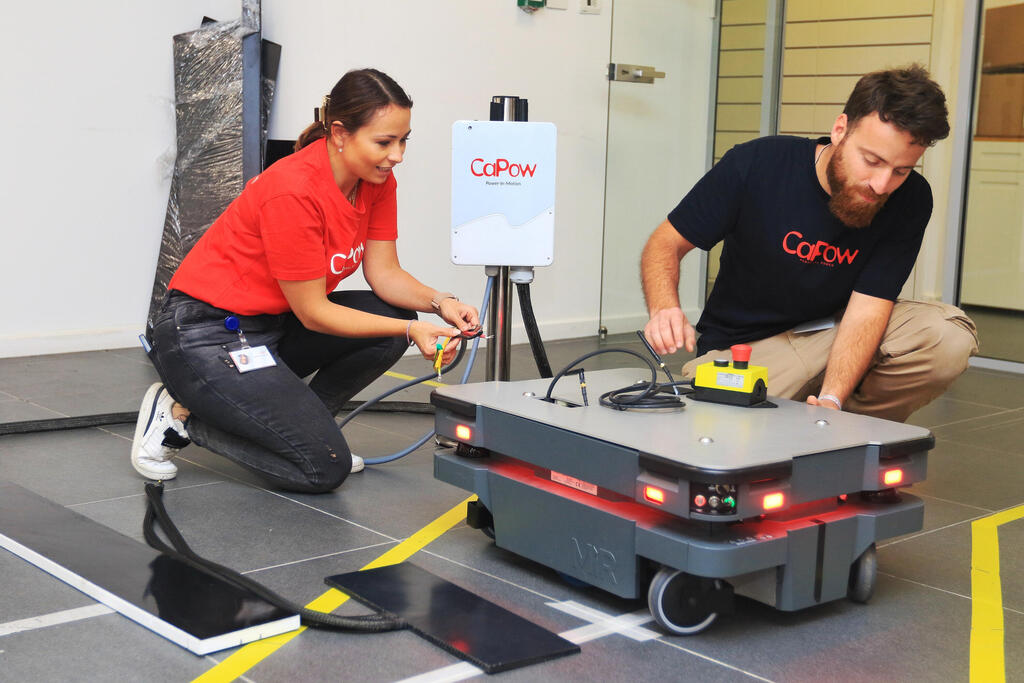

CaPow employees install its charging product on an industrial robot
(Photo: Meir Even Chaim)
"Until it hurts investments"
How was CaPow actually born?
"I was working on a side project for a company that wanted to build a virtual reality helmet without wires for power. We quickly realized that the helmet couldn’t hold a large enough battery because it became too heavy. It’s similar to the constraints faced by Formula 1 drivers or pilots, who risk joint injuries if their helmets are too heavy when driving at high speed. I understood that electricity needed to be transmitted through the air, but I didn’t know how to do it or why it hadn’t been done before. I took a few of my students, each working on a small part of the solution, and after proving the feasibility, I founded CaPow. Ultimately, the company is based on one of Nikola Tesla's well-known but abstract principles: harnessing an energy field to create an electric field."
In his mind’s eye, Peretz envisions his startup as the ultimate solution that will dominate the world of automation—Energy as a Service (EaaS), a paraphrase of Software as a Service. Although he is currently focused on the gray market of logistics warehouses, in his dream, as the field progresses, Peretz already envisions humanoid robots and autonomous cars being charged using his solution.
Today, CaPow employs 34 people, most of whom are his former or current students. The company's chairman is Amir Fishelov, one of the legendary group of five Unit 81 graduates who co-founded SolarEdge with their boss Guy Sella. SolarEdge was once the largest Israeli company by market value. Together with Fishelov, who has since retired from SolarEdge, and the other two founders of CaPow—Dr. Eli Abramov and Dr. Alon Cervera—they began adapting the idea that originated in the lab into a product suitable for the business world.
In 2022, the group completed its first capital raise, but not without difficulties. According to Peretz, Fishelov's involvement helped ease the process for investors: "With his reputation, it was easier. However, investors still signaled that they did not want a professor as CEO," he admits. That’s why, at the beginning, Peretz was not the CEO of the company, even though it was founded based on his idea. "In crossing the metaphorical road from university to high-tech park," he says, "I had to go through a process of rebuilding my reputation—even though, as an academic, I was already known globally."
CaPow’s offices are located in the Gav-Yam high-tech park in Be'er Sheva, adjacent to the ICT Center that is currently being built, and not far from the IDF’s future Intelligence complex. From a distance, the building complex resembles those in Tel Aviv, Herzliya, or Rehovot, with familiar logos on the facades, including Nvidia and Microsoft. But as you get closer, it’s easy to spot the differences. Human traffic is sparse, mainly soldiers studying in the various ICT Corps courses. The selection of restaurants is also not particularly impressive.
“It looks high-tech here, but it's very different from Tel Aviv. In the center of the country, it’s easier to recruit employees, and venture capital funds can more easily 'digest' you.
“It’s true that it’s more challenging, but I’m connected to the Negev. In the meantime, all the companies are concentrated in the center of the country, and there is no ecosystem here. In the center, at every lunch, high-tech people see dozens of logos that could be their next workplace, so everyone is drawn to work there, and it’s hard to get them to leave. But the military’s move to the south is starting to create momentum, and in the longer term, it can help. You have to work to bring employees here, and I believe in incentives that contribute to a career.”
Meaning?
"An extra 2,000 or 3,000 shekels in salary won’t help, but the job will. I really believe in pushing people to the max and giving them a job that’s one click higher than what they planned or thought they were capable of. It gives them motivation, and it works."
Where do CaPow's employees come from?
"Last year, we started hiring employees who aren’t my students, and most of them come from outside Be'er Sheva. It's not that there aren’t suitable people in Be'er Sheva, but we need people from a very specific field, with expertise in hardware."
You know you're paying a price for insisting on staying in Be'er Sheva.
"As an entrepreneur, I pay a price for insisting. I’m willing to suffer personally, but if I feel it’s preventing the company from growing, it won’t be worth it."









